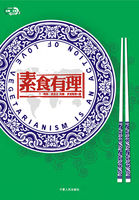At nightfall Sumter ceased fire while the Confederates kept on slowly till daylight. Next morning the officers' quarters were set on fire by red-hot shot. Immediately the Confederates redoubled their efforts. Inside Sumter the fire was creeping towards the magazine, the door of which was shut only just in time. Then the flagstaff was shot down. Anderson ran his colors up again, but the situation was rapidly becoming impossible. Most of the worn-out men were fighting the flames while a few were firing at long intervals to show they would not yet give in. This excited the generous admiration of the enemy, who cheered the gallantry of Sumter while sneering at the caution of the Union fleet outside. The fact was, however, that this so-called fleet was a mere assemblage of vessels quite unable to fight the Charleston batteries and without the slightest chance of saving Sumter.
Having done his best for the honor of the flag, though not a man was killed within the walls, Anderson surrendered in the afternoon. Charleston went wild with joy; but applauded the generosity of Beauregard's chivalrous terms. Next day, Sunday the fourteenth, Anderson's little garrison saluted the Stars and Stripes with fifty guns, and then, with colors flying, marched down on board a transport to the strains of Yankee Doodle.
Strange to say, after being four years in Confederate hands, Sumter was recaptured by the Union forces on the anniversary of its surrender. It was often bombarded, though never taken, in the meantime.
The fall of Sumter not only fired all Union loyalty but made Confederates eager for the fray. The very next day Lincoln called for 75,000 three-month volunteers. Two days later Confederate letters of marque were issued to any privateers that would prey on Union shipping. Two days later again Lincoln declared a blockade of every port from South Carolina round to Texas. Eight days afterwards he extended it to North Carolina and Virginia.
But in the meantime Lincoln had been himself marooned in Washington. On the nineteenth of April, the day he declared his first blockade, the Sixth Massachusetts were attacked by a mob in Baltimore, through which the direct rails ran from North to South. Baltimore was full of secession, and the bloodshed roused its fury. Maryland was a border slave State out of which the District of Columbia was carved. Virginia had just seceded. So when the would-be Confederates of Maryland, led by the Mayor of Baltimore, began tearing up rails, burning bridges, and cutting the wires, the Union Government found itself enisled in a hostile sea. Its own forces abandoned the Arsenal at Harper's Ferry and the Navy Yard at Norfolk. The work of demolition at Harper's Ferry had to be bungled off in haste, owing to shortness of time and lack of means. The demolition of Norfolk was better done, and the ships were sunk at anchor. But many valuable stores fell into enemy hands at both these Virginian outposts of the Federal forces. Through six long days of dire suspense not a ship, not a train, came into Washington. At last, on the twentyfifth, the Seventh New York got through, having come south by boat with the Eighth Massachusetts, landed at Annapolis, and commandeered a train to run over relaid rails. With them came the news that all the loyal North was up, that the Seventh had marched through miles of cheering patriots in New York, and that these two fine regiments were only the vanguard of a host.
But just a week before Lincoln experienced this inexpressible relief he lost, and his enemy won, a single officer, who, according to Winfield Scott, was alone worth more than fifty thousand veteran men. On the seventeenth of April Virginia voted for secession. On the eighteenth Lee had a long confidential interview with his old chief, Winfield Scott. On the twentieth he resigned, writing privately to Scott at the same time: "My resignation would have been presented at once but for the struggle it has cost me to separate myself from a service to which I have devoted the best years of my life. During the whole of that time I have experienced nothing but kindness from my superiors and a most cordial friendship from my comrades. I shall carry to the grave the most grateful recollections of your kind consideration, and your name and fame shall always be dear to me.
Save in the defense of my native State I never desire again to draw my sword."The three great motives which finally determined his momentous course of action were: first, his aversion from taking any part in coercing the home folks of Virginia; secondly, his belief in State rights, tempered though it was by admiration for the Union;and thirdly, his clear perception that war was now inevitable, and that defeat for the South would inevitably mean a violent change of all the ways of Southern life, above all, a change imposed by force from outside, instead of the gradual change he wished to see effected from within. He was opposed to slavery;and both his own and his wife's slaves had long been free. Like his famous lieutenant, Stonewall Jackson, he was particularly kind to the blacks; none of whom ever wanted to leave, once they had been domiciled at Arlington, the estate that came to him through his wife, Mary Custis, great-granddaughter of Martha Washington. But, like Lincoln before the war, he wished emancipation to come from the slave States themselves, as in time it must have come, with due regard for compensation.
On the twenty-third of this eventful April Lee was given the chief command of all Virginia's forces. Three days later "Joe"Johnston took command of the Virginians at Richmond. One day later again "Stonewall" Jackson took command at Harper's Ferry.
Johnston played a great and noble part throughout the war; and we shall meet him again and again, down to the very end. But Jackson claims our first attention here.















